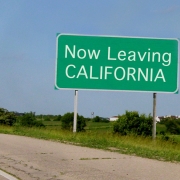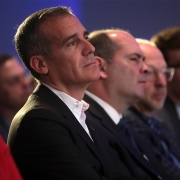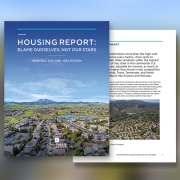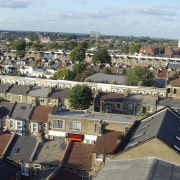Green Hypocrisy Hurts the Poorest
Roughly a half century ago, rising energy prices devastated Western economies, helping make the autocrats of the Middle East insanely rich while propping up the slowly disintegrating Soviet empire. Today the world is again reeling from soaring energy prices; but this time the wound is self-inflicted — a product of misguided policies meant to accelerate the transition to green energy.
For the political and academic clerisy, the energy “reset” is like manna from heaven. It gives them a licence to impose the kind of “technocratic social engineering” that makes poor people poorer while stripping away working-class aspirations, as we already see in places like California and Germany. In Spain, 10% of all households cannot adequately heat their homes during the winter months; and in Italy, electricity bills jumped by 55% by January 2022. In the United Kingdom the number of homes that cannot pay their energy bills is set to triple by April 2022.
The new regime of expensive, often intermittent energy also threatens to make permanent the poverty of the developing world, which already suffers from a lack of cheap and reliable energy. The fossil fuels now being targeted by Western policymakers and financial firms like Blackrock are critical for industrialisation, and it is unlikely they can be replaced by wind and solar alone: fossil fuels still account for 81% of all energy supplies, and even if every country meets their climate promises, they will still account for roughly three quarters in 2040.
It’s hardly surprising, then, that in Africa there is a growing skepticism toward Western policies of “sustainability” — even though these policies, draped in the language of socially conscious “stakeholder capitalism”, pledge to address “systemic racism”. Already in 2015, for example, the president of the African Developmental Bank stated that “Africa cannot function because we have no power” and affirmed the continent’s need for “renewable and conventional” energy, including “natural gas and coal”.
Similarly, in the lead-up to the UN Climate Change Conference last year, Nigerian President Muhammadu Buhari warned that the climate policies favoured by Western governments investors and aid agencies could lead to an Africa-wide energy crisis. Just last month, the president of Senegal made it clear ahead of the EU-African Union summit that Africans are not prepared to pay for Europe’s carbon levy. South Africa’s Energy Minister, meanwhile, criticised NGOs and universities that promote “climate-driven solutions” with money from European think tanks.
Read the rest of this piece at UnHerd.
Joel Kotkin is the author of The Coming of Neo-Feudalism: A Warning to the Global Middle Class. He is the Roger Hobbs Presidential Fellow in Urban Futures at Chapman University and Executive Director for Urban Reform Institute. Learn more at joelkotkin.com and follow him on Twitter @joelkotkin.
Hügo Krüger is a structural engineer from Pretoria, South Africa.
Homepage photo: Lëa-Kim Châteauneuf via Wikimedia under CC 4.0 License



 Gage Skidmore, CC 2.0 License
Gage Skidmore, CC 2.0 License

 BBC World Service, used under CC 2.0 License
BBC World Service, used under CC 2.0 License
